
Bridging the gap: How Switzerland can reinforce its winter electricity supply
On 20.06.2024 by Adrien MellotElectricity autarky is a sensitive topic in Swiss politics, with electricity supply in winter often being the centre of attention. The bill on a secure electricity supply, voted on June 9, 2024, introduced a new provision aiming to limit net winter electricity imports to current levels as Switzerland transitions. In a recent study, we delved into how to align the current Swiss transition roadmap with this new policy goal. Read More

Climate science may not require us to stop burning fossil fuels, but everything else does
On 14.06.2024 by Anthony Patt, Johan Lilliestam, Nicoletta BrazzolaWhile technologies to trap and store CO2 underground may give a license to fossil fuels to survive in a net-zero emissions world, in this opinion piece we argue that this is economically irrational and a risky gamble, calling for clear phase-outs of fossil fuels. Read More

Renewable energy projects take longer to commission than a decade ago
On 06.05.2024 by Anurag GumberThe time to commission and install new renewable energy projects has increased over the past decade. In short, we are building slower. Here, we explore factors that have affected timelines and suggest how to accelerate climate action. Read More
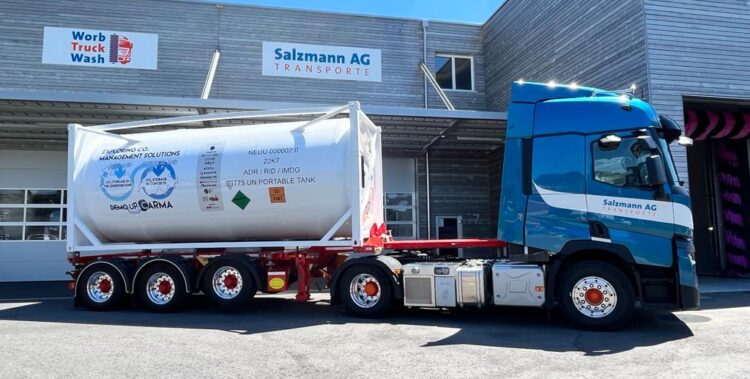
CCTS can already avoid CO2 emissions: An overview of the environmental impacts of carbon capture, transport, and storage
On 26.04.2024 by Johannes BurgerNet zero economies will need carbon capture, transport, and storage (CCTS) to decarbonize CO2-intensive industries, like cement production, and compensate for residual emissions from agriculture or aviation. Achieving the magnitudes of CCTS needed for net zero requires an infrastructure capable of capturing, transporting, and storing several megatonnes of CO2 per year as soon as possible. Pipelines are best suited for transporting large amounts of CO2 but do not exist in Europe yet and take several years to plan and build. Therefore, infrastructure for immediately capturing, transporting, and storing CO2 will rely on currently available technologies. As no experience in applying these technologies to CCTS exists, their climate impact on a CCTS system is unknown. As we show in a recent study, a CCTS system with available technologies can avoid more than half of the emissions produced at an industry plant in Switzerland. Read More
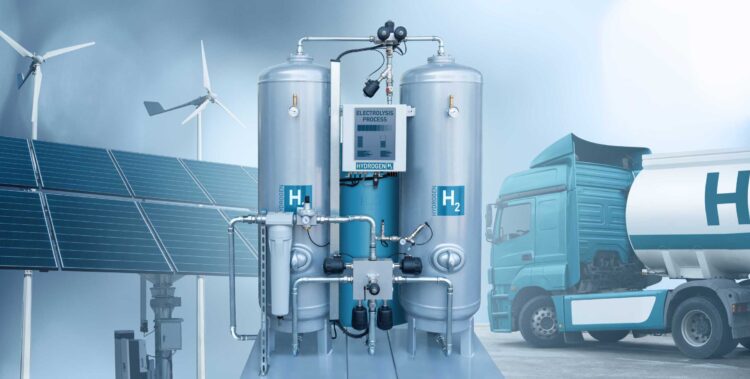
Hydrogen: handle with care
On 29.01.2024 by Anthony PattFor Anthony Patt, Europe’s ambitious plans for a hydrogen economy may be too ambitious, tipping the scales towards the interests of the fossil fuel industry, rather than energy consumers and the climate. Switzerland should be careful before jumping fully on board, he argues. Read More

Unveiling the Power of Open Energy Data in Switzerland: Learnings from the Energy Data Summit
On 15.01.2024 by Adriana Marcucci, Rebecca Lordan-Perret, Christian Schaffner, Matthias EifertThe Energy Data Summit, held during Energy Week @ ETH, participants discussed the pivotal role of open energy data in Switzerland’s energy transition. Our blog discusses the key takeaways of the summit, including the significance of energy data, the current status of open energy data in Switzerland, and the existing challenges and potential solutions. Enjoy! Read More
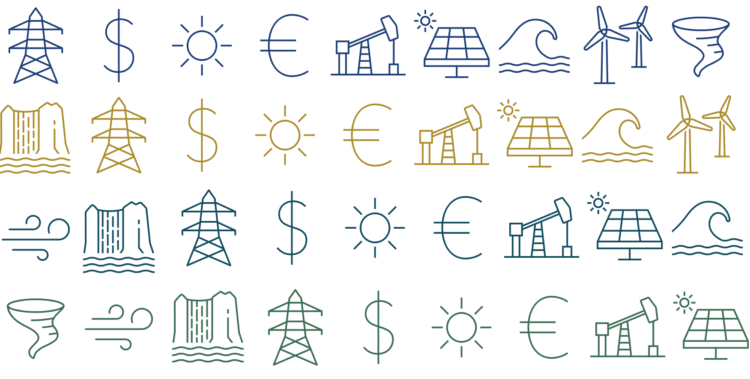
Energy systems and insurance: a primer
On 12.12.2023 by Kate LonerganInsurance services help individuals, businesses, and organisations be more resilient and recover from financial losses. But what role does insurance have in the energy sector? Find out below with some key takeaways from our recent publication Ensuring/insuring resilient energy system infrastructure in Environment Systems and Decisions. Read More
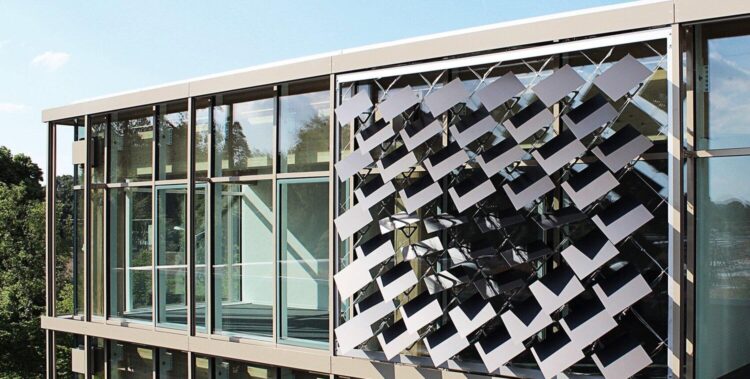
Unveiling the power of the sun: A guide to estimating your building’s solar energy potential and beyond
On 04.10.2023 by Ayca DuranHarnessing the sun’s energy to generate electricity through building envelopes presents an opportunity for us to contribute to a better future. But what is the energy generation potential of your building, and how can you estimate it? Beyond energy generation and savings, what should you keep in mind before integrating photovoltaic systems (PVs)? Making an informed decision is essential when thinking about installing solar PV on your building. This involves understanding its solar generation potential and weighing all other relevant factors. In this blog post, I will walk you through the process—from estimating solar energy potential to considering factors beyond mere energy generation, helping you make an informed decision. Read More

The search for clean flexible power: what can low-carbon multi-energy systems offer?
On 02.08.2023 by Arvind SrinivasanThe integration of renewable energies increases the need for flexible power to be able to always match supply and demand. One source of clean flexible power could be coming from the end-users as the systems at local scale transition to low-carbon multi-energy systems. The flexibility potential of multi-energy systems for balancing services can be quantified by integrating the rules and rewards governing flexibility in energy system models. It aids the end-users to meet their energy economically and the transmission system operators to drive regulation designs that could maximize flexibility from end-users. Read More
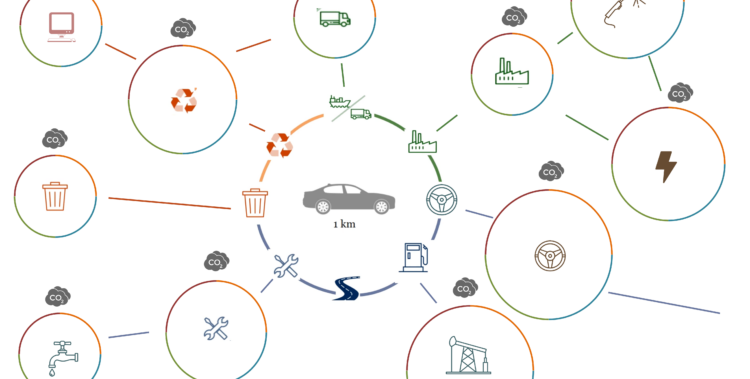
Understanding the carbon footprint of your daily commute: a guide to climate-friendly urban transport
On 19.07.2023 by Romain Sacchi, Christian BauerYou are probably aware that your daily commute contributes to climate change. But just how much? In this blog post, we offer a detailed look at the carbon footprint of various transport modes, from bicycles and scooters to cars and public transit. Learn how everyday choices can significantly affect your impact on the environment and discover more sustainable options for urban mobility. We also showcase user-friendly tools that you can use for free to give you a comprehensive understanding of the environmental impacts of your transport choices. Ready to make greener choices? Let’s dive into the findings together! Read More

Are Swiss solar PV auctions well-designed and how can they be improved?
On 04.07.2023 by Mak DukanAuctions for renewable energy support have become the standard way to give out subsidies to solar energy projects and other renewables in Europe. In an auction, investors usually compete to receive the subsidy based on their offered support price, where the bidders with the lowest offered prices win. The Swiss government has started using auctions to award investment subsidies to larger PV projects. Are the auctions designed well and fit for purpose? How have the auctions performed until now? Read More

Land-free bioenergy for a carbon-neutral Europe –why, what, how?
On 20.06.2023 by Fei WuNavigating the complexities of bioenergy, its potential for carbon neutrality, and its conflicts with land, food, and feed resources is a pressing issue. What if we could circumvent these issues and focus solely on land-free bioenergy, similar to growing mushrooms on waste coffee grounds for a delicious dish? Waste and byproducts can generate valuable bioenergy, playing strategic roles in a future sustainable energy system. This blog post presents key findings from our latest research papers, providing insights into the strategic applications of land-free bioenergy and its policy implications. Join us in exploring the ‘why,’ ‘what’, and ‘how’ of deploying land-free bioenergy effectively in the quest for carbon neutrality. Read More
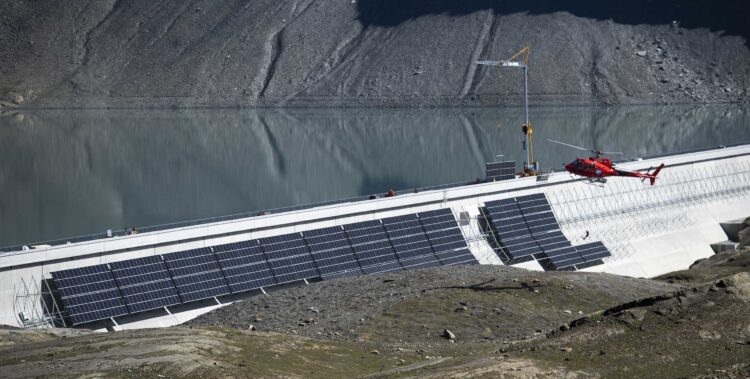
Can Switzerland transition to a secure renewables-based energy system? Absolutely!
On 08.06.2023 by Christian Schaffner, Gabriela HugGabriela Hug – an expert in power transmission networks – argues that securing an affordable energy supply from renewable sources is not a utopian ideal for Switzerland, but rather a practical and feasible necessity. Read More
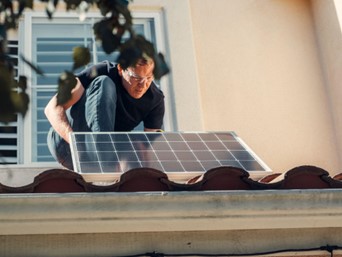
Should policymakers promote community solar PV systems in cities?
On 31.05.2023 by Danielle Griego, Prakhar Mehta, Alejandro Nunez-MartinezCommunity solar systems, defined as medium to large-scale PV installations co-owned by multiple building owners and/or tenants, offer one option to increase PV adoption in cities. This blogpost summarizes the findings of our recent paper that explores if, by how much and under which conditions community solar could help accelerate PV adoption in cities. Read More

Why we need electricity trade
On 17.05.2023 by Anthony PattTo decarbonize our economy, electricity will replace oil and natural gas as the primary energy carrier. Where should that power come from? Many people argue that all of it should be produced domestically. Careful analysis suggests some share of it should be imported, says Anthony Patt. Read More

We need more transparent supply chains for a low-carbon society – the case of lithium mining
On 03.05.2023 by Vanessa SchenkerEvery time we calculate the environmental impacts of an electric vehicle, we use data from the lithium carbonate production at the Salar de Atacama in Chile. To meet soaring lithium demand, other, more polluting mining pathways are emerging. However, poor data availability is preventing proper accounting, leading to underestimated environmental damages. What we need are more transparent supply chains for a low-carbon society. Read More
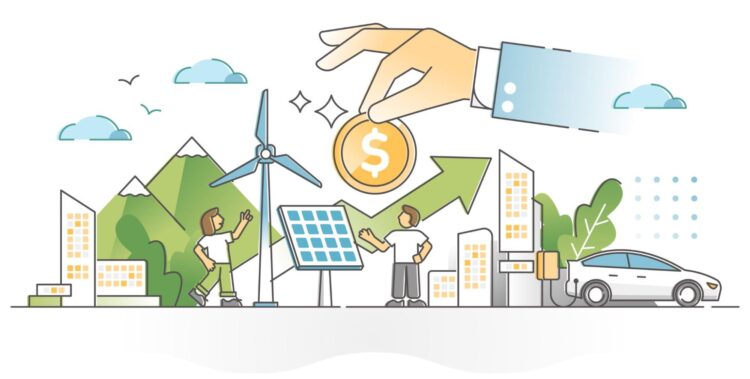
Europe’s infrastructure investments are not growing fast enough to reach net zero
On 25.04.2023 by Lena KlaaßenMassive investment in low-carbon infrastructure is required to put Europe on a path to net zero by 2050. While this is no big surprise, it is astonishing that investments are still growing rather slowly, even for market-ready technologies such as onshore wind or solar PV. This blogpost quantifies current investment gaps in Europe’s energy infrastructure and discusses the hurdles that must be urgently overcome to reach the required investment levels. Read More
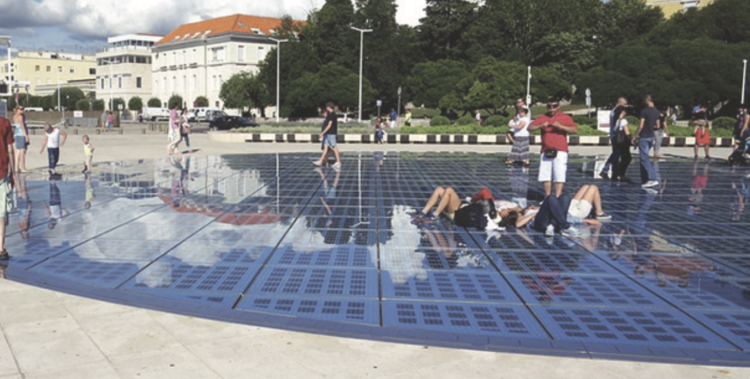
Ever wondered what urban integrated photovoltaics could mean for spaces and infrastructure in Zurich?
On 04.04.2023 by Maximilian GesterThrough different scales and spaces in the city of Zurich, this article analyzes the potential for UIPV (Urban Integrated Photovoltaics). Based on interviews with stakeholders such as architects, engineers, and the city of Zurich, the article suggests various PV implementations and their benefits at 4 different scales: Bus shelters, Parking lots, Plazas and Bridges. Read More

The missing piece: How diverse behaviors shape flexible electric vehicle charging
On 22.03.2023 by Christine Johanna GschwendtnerIn an increasingly decentralized and electrified energy system, electric vehicle (EV) users and their diverse behaviors could both drastically hinder or substantially support current energy transition efforts in many regions globally. The negative or positive effect depends on how users are integrated into the system. The grid risks experiencing high peaks in electricity demand when many EV users charge their vehicles at the same time. Changes in charging behavior that shift charging to other times and places can substantially minimize grid expansion needs and balance electricity demand with variable renewable energy supply. Despite this flexibility potential, behavioral aspects of EV charging are often oversimplified or even neglected in studies and pilot projects. This blogpost discusses how different behaviors can support the integration of EVs and renewable energy. Read More

Why and how to put demand-side flexibility at the heart of the zero-carbon electricity transition
On 16.03.2023 by Christine Johanna GschwendtnerElectricity systems require more and more flexibility to integrate increasing shares of variable renewable electricity and avoid costly grid expansion. The demand side – involving electricity end-users – will be key in providing relatively cheap flexibility. Looking beyond the technical aspects is crucial to leverage this potential; namely, by addressing social and regulatory challenges. Effective compensation mechanisms for providing flexibility and procurement strategies for different services, particularly at the distribution grid level, need to be established while enabling the participation of small flexibility providers. Read More

Five global energy conversations to follow in 2023
On 07.03.2023 by Leopold Peiseler, Churchill Omondi Agutu, Kate LonerganIn this blog post, editors Kate, Churchill, and Leopold identify five global energy conversations they will be following in 2023, which they believe will be of interest to you. Check out their picks to stay informed and engaged in these important discussions. Read More

Diversifying and scaling direct air capture for a net-zero future
On 28.02.2023 by Katrin SievertTo meet net-zero targets by mid-century, gigatons of carbon dioxide (CO2) per year must be removed through direct air capture and storage (DACS). However, current deployment is low, requiring DACS technologies to be deployed at an unprecedented pace. The blog post explores the two most advanced capture methods used in DACS, compares their scalability, and stresses the significance of investing in multiple technologies over the next decade instead of solely relying on existing approaches. Read More

America’s Inflation Reduction Act is asking too much of car manufacturers and electric vehicle supply chains
On 06.12.2022 by Bessie NollAmerica’s recently passed climate law, the Inflation Reduction Act (IRA), provides strong support for accelerated adoption of clean vehicles in the US. Subsidies are generous for consumers looking to go electric, but only for vehicles that meet strict geographic requirements for critical mineral sourcing, battery manufacturing and vehicle assembly. Unabashedly, the US is seeking to shift the EV supply chain from China to North America, but at what cost?—I discuss whether the isolationist IRA is the right move for the US and, more importantly, the climate. Read More

Security of electricity supply: Can the industry sector fix the Swiss winter deficit?
On 28.11.2022 by Marius Schwarz, Lukas FedererSecurity of electricity supply and electricity costs have become major business concerns for the Swiss industry sector. On the current trajectory towards a clean energy system, situations in winter with reduced availability of electricity followed by soaring prices may occur more regularly. With Switzerland establishing a strategic reserve to overcome electricity shortage situations, we argue in this blog post that demand-side measures – especially load reductions by industry – should be part of such a reserve, even if the contribution may be small. We present our findings from quantitative assessments and insights from expert interviews. Read More

Tackling the energy crisis in Europe is a common effort
On 23.11.2022 by Jacob MannhardtThe secret to getting through the energy crisis is that everyone in Europe does their part. And a bit of luck. In this blogpost, we highlight some preliminary results from our investigation of the gas shortage in Europe – because winter is here but Russian gas is not. We model the optimal response to the gas crisis to outline a potential strategy for European countries to get through this daunting situation. Read More
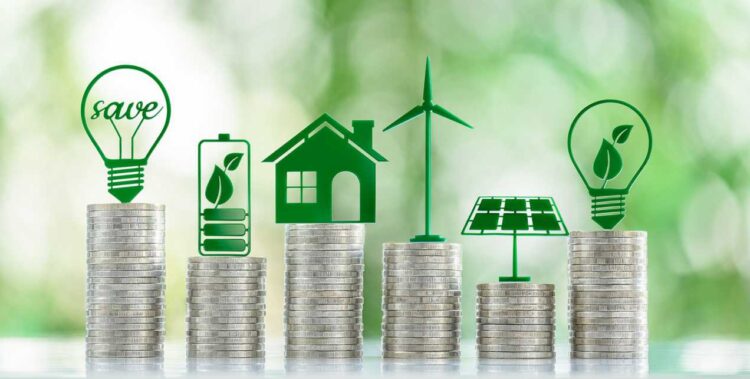
Climate protection benefits the economy
On 07.11.2022 by Anthony PattWhile the economic impacts of climate policy are generally perceived as costs, Anthony Patt proposes the opposite perspective. For Switzerland, converting the energy system and reaching the net-zero target may net benefit the economy, he finds. Read More

Did you know that access to electricity is not recognized as a universal human right?
On 01.11.2022 by Vanja DjinlevElectricity consumption is closely and positively related with global economic and human development across different geographical, social, and cultural contexts. As a Sustainable Development Goal (Goal 7: Ensure access to affordable, reliable, sustainable and modern energy) and as an integral part of the water-energy-food nexus, access to electricity is vital to our individual and collective security and well-being. Despite the importance, access to electricity is not explicitly recognized as a universal human right. This blog article outlines the way to make access to clean, affordable and reliable electricity a universal human right, and explores the practical implications of the action. Read More

Context matters and electrification models should reflect it
On 18.10.2022 by Churchill Omondi Agutu, Florian Manuel EgliThis blogpost discusses a key shortcoming in electrification models used by policymakers and international organizations to chart electricity access pathways in sub-Saharan Africa – unrealistic financing cost assumptions. We highlight why this often overlooked flaw in electrification models could slacken efforts to reach universal electricity access by 2030 and highlight why it matters. Read More
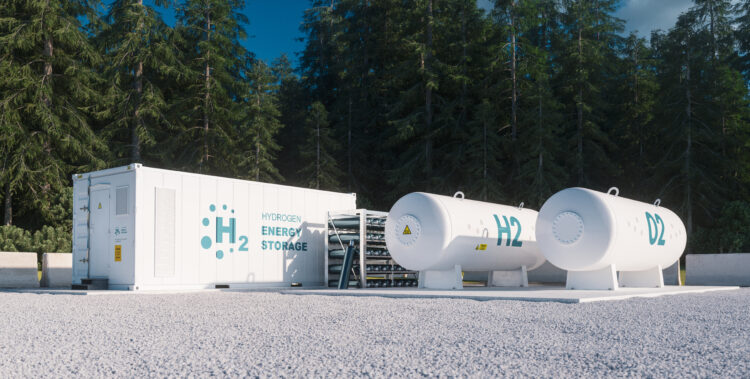
Is there a role for blue hydrogen in a green energy transition?
On 23.09.2022 by Russell McKenna, Anna Peecock, Alfonso Martinez-FelipeThe global energy transition requires a dramatic shift towards renewable and low-carbon energy technologies. Hydrogen is one of these and can be used to store intermittent solar and wind power. As well as being produced from green electricity by electrolysis, it can also be manufactured by capturing and storing carbon dioxide during the conversion of natural gas. This blog article sheds light on the role that these two options of low-carbon hydrogen production could play in the near and far future. Read More

More curse than blessing? Carbon offsetting by planting trees
On 22.03.2022 by Clémence Rüegsegger and Leopold PeiselerImages of lush forests often carry notions of sustainability and eco-friendliness. But can planting trees be an effective instrument against climate change? Counterintuitively, there are many practical barriers rendering this question difficult to answer. This blog post calls for a public debate on afforestation/reforestation and carbon offsetting. Read More

Green coalitions’ contradictions – why we need innovative policies for building stock decarbonization
On 05.01.2022 by Ivalin PetkovProminent policy initiatives all over the globe are polarizing society for how to govern an increasingly unaffordable building stock in the era of sustainability – even in the quaint city of Basel in traditionally neutral Switzerland. While our readership is primarily concerned with energy and CO₂, here I present an emerging conflict between social and environmental policies in the building sector – primarily due to the silo mentality of (green-leaning) politicians and policymakers. I argue why we need to break down these silos by innovating our current arsenal of policy tools to achieve the broader set of goals. Read More

Wasserstoff wäre ein Rückschritt
On 25.11.2021 by Anthony PattUm die Erderwärmung einzudämmen muss die Welt bis Mitte Jahrhundert aus der fossilen Energie aussteigen. Wir bewegen uns nun in die richtige Richtung. Nahezu alle neuen Investitionen im Energiesektor fliessen in erneuerbare Energiequellen. Batteriebetriebene Elektrofahrzeuge (BEV) werden immer beliebter. Und die meisten neuen Gebäude heizen nicht fossil. Klar gibt es Hürden. Das alles muss schneller gehen, und es braucht eine konsequentere Klimapolitik. Was den Wandel aus meiner Sicht jedoch am stärksten gefährdet, kommt heute als Teil der Lösung «getarnt» daher: Wasserstoff. Read More

Hydrogen won’t help the energy transition
On 25.11.2021 by Anthony PattTo save the climate, the world needs to stop using fossil fuels by mid-century. We are finally headed in the right direction. Nearly all new power-sector investment is going into renewable energy sources. Battery electric vehicles (BEVs) are becoming popular. Most new buildings are being built with non-fossil heating systems. The pace of change needs to accelerate, and stronger climate policies are required. Yet one of the most serious threats to all of this is currently masquerading as clean energy’s friend: hydrogen. Read More

Deep-sea mining for our mobility transition: the quest for sustainable batteries
On 09.07.2021 by Leopold PeiselerClimate change is pressing and we need fast decarbonisation of all aspects of life. As a multi-purpose technology, batteries play a central role in the reduction of carbon emissions. However, the current supply chain of Lithium-ion batteries is often associated with environmental and social burdens. Thus, some voices are advocating alternative mining: potato-sized rocks, rich in critical metals. The catch? These rocks lie 4000-6000m deep in the oceans and we have little to no idea about this niche ecosystem or the severity of impacts on it if mining were to occur. Read More
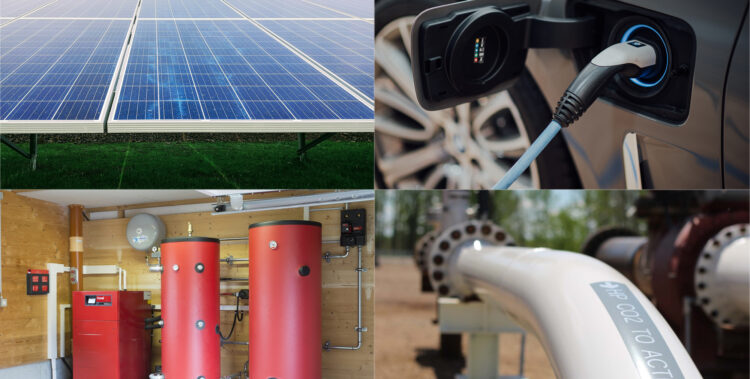
Why we need net-zero emissions scenarios for mid-century
On 27.04.2021 by Gianfranco GuidatiOur goal is not to predict the future, rather to shape it. Net-zero scenarios for the energy system help us do that. Although they deliver only a blurred view of the future, they allow us to guess the shape of things to come, and most importantly to formulate actions for today that will put us on the right track. Read More

The role of seasonal energy storage in decarbonizing the energy system
On 12.04.2021 by Ivalin Petkov, Paolo GabrielliEnergy storage is required to reliably and sustainably integrate renewable energy into the energy system. Diverse storage technology options are necessary to deal with the variability of energy generation and demand at different time scales, ranging from mere seconds to seasonal shifts. However, only a few technologies are capable of offsetting the long-term (seasonal) mismatch between renewable generation and energy demand. Here we outline the role and potential of seasonal energy storage to decarbonize the energy system. Read More
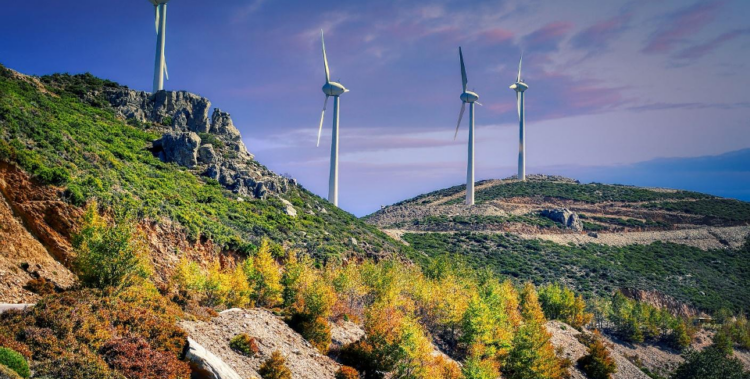
Promoting renewable energy sources in Greece: the need for change and the obstacles along the way
On 05.02.2021 by Gabriela HugClimate change urges every country to take action. Greece has decided to phase-out lignite, a key fuel in its energy mix, and increase the installed capacity of renewable energy sources. Citizens often oppose new renewable energy investments, like new wind farms. What can the Greek government do to ease this transition? Read More
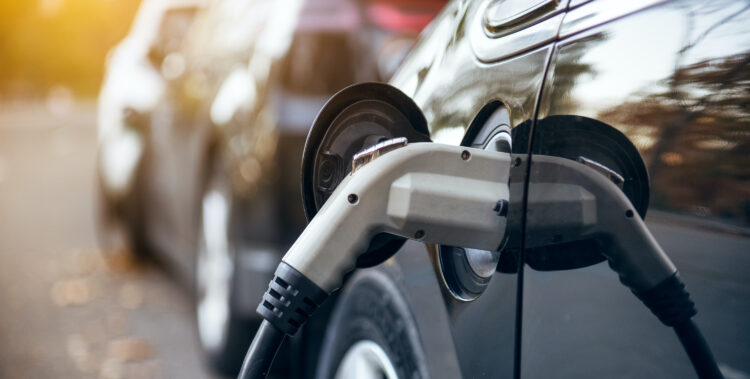
Vehicle-to-Grid (V2G) and car sharing: Joining forces to decarbonize electricity and transport?
On 25.01.2021 by Christine Johanna GschwendtnerHow can we couple future developments in the electricity and transport systems to support decarbonization? Combining Vehicle-to-Grid and car sharing could foster both innovations and achieve synergies in decarbonizing both sectors. Read More

Why electric vehicles are more sustainable than you might think
On 12.01.2021 by Martin BeuseDespite the recent flood of (non-academic) studies claiming differently, battery-powered electric vehicles (BEV) already provide significant environmental benefits over internal combustion engine (ICE) cars. This gap is only widening, as policy, academia, and industry are coming together to rapidly improve BEVs and battery technology in particular. Read More
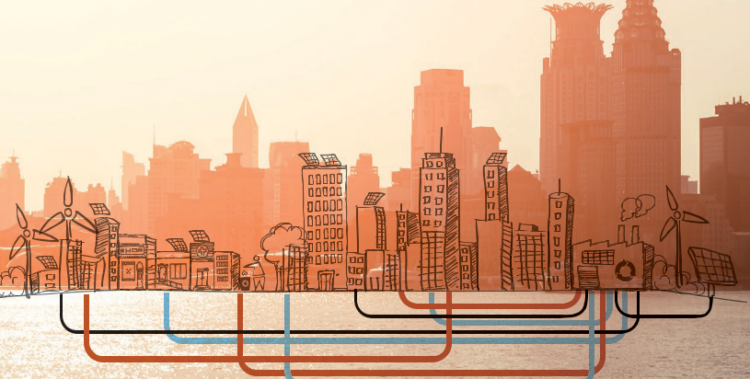
How smart grids will change the way architects have to design buildings
On 30.11.2020 by Christoph WaibelIn order to efficiently integrate intermittent renewable energy into our grids, we need to change the role that buildings play in a city. Instead of being mere consumers, they need to become a swarm of smart prosumers capable of stabilizing the grid. This calls for a new way how architects should design buildings, leading to the next era of architecture: “Energy Responsivism”. Read More

Promoting adoption of electric motorcycles in Nepal: Challenges and Opportunities
On 17.11.2020 by Nilkanth KumarKathmandu’s stark air pollution and limited public transport infrastructure poses a challenge towards achieving sustainable and adequate transport. Motorcycles are the most sought after mode of private mobility in Nepal. Electric motorcycles appear to be a viable and promising solution, but several technological, market and behavioural factors hinder their higher adoption. Read More
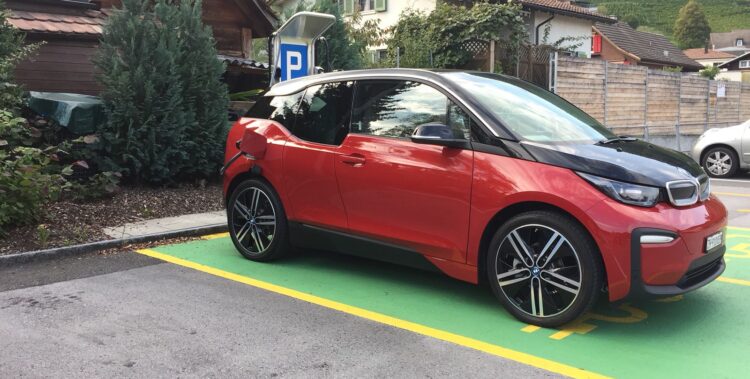
Beyond more Chargers for Electric Vehicles in Zurich
On 10.11.2020 by Gracia BrückmannThe conventional wisdom is that to increase battery electric vehicle (BEV) uptake, we need more charging points. However, when we spoke with citizens, car dealership representatives, representatives from car import companies, and local government about the challenges and opportunities for BEVs in Zurich, they mention different challenges, too, and present solutions to overcome them e.g., including BEVs in coherent sustainable transport systems and reducing political uncertainty. Read More
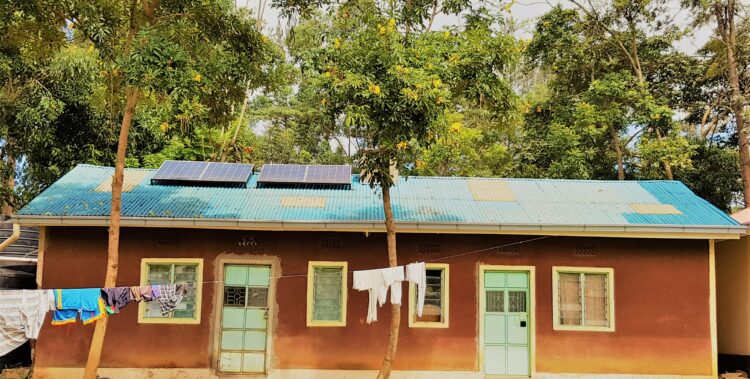
Accelerating the energy transition in developing countries: Inclusion of women in clean energy strategies
On 16.10.2020 by Cristina de los Angeles Dominguez HernandezIn rural communities, women are the primary energy users as they are the ones performing household chores such as cooking and domestic work. For this reason, they are the most affected along with children from the use of highly-pollutant conventional fuels. Ironically, most of the time they are excluded from clean energy strategies targeted toward transitioning to clean fuels. My research has shown that gender focused initiatives targeting women can play a major role in accelerating this transition to affordable, safe, and reliable energy. Read More

Data exchange via virtual assistants is key to unlocking the full potential of the future energy system
On 01.10.2020 by Matthias SulzerConnecting buildings to a cross-sectoral, decentralized energy system is a proven means of integrating more renewable energy sources and further increasing energy efficiency. However, the operation of such highly interconnected energy systems is becoming painstaking. Data and algorithms will be the key to overcome these pains and to unlock the innovative systems’ full potential. Read More

Building Resilience to the Next Pandemic: The “Power” of sub-Saharan Africa’s Off-grid Electricity Sector
On 13.07.2020 by Churchill Omondi AgutuIn the wake of the current global pandemic, building resilience to future pandemics will be on the minds of many policymakers going forward. For sub-Saharan Africa, linking electrification with essential services such as healthcare, clean water and sanitation, could do double duty by expanding electricity access and making these countries more resilient to COVID-19. Read More

Out of Sight, Out of Mind: Pathways to achieve Net-Zero Carbon Shipping
On 05.05.2020 by Christina NakhleThe time has come to implement the “pollutant pays” principle, set clear emission reduction targets and competitive incentives to enable the decarbonization of the “backbone of our economy”. Read More

The long way ahead for the energy transition
On 22.04.2020 by Viktoras KulionisConcerns about the consequences of excessive global warming have increased interest in the energy transition. General belief is that the energy transition has been the dominant factor of the increased use of renewable energy. However, only few countries/regions show evidence of an actual energy transition. At the global level, its relevance is short of non-existent when you do the math. Read More
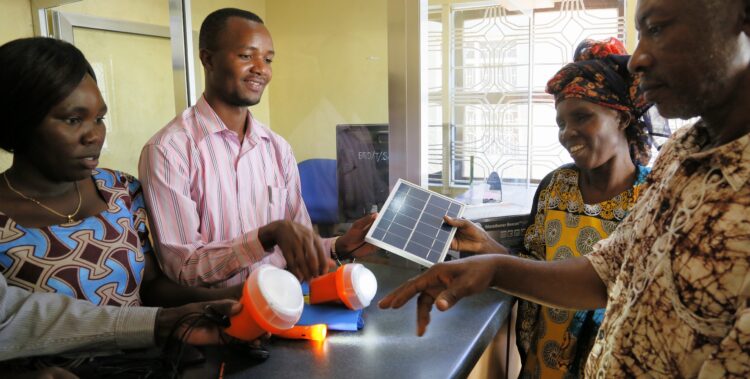
Electrifying Rwanda: Why mini-grid companies have lost the game
On 07.04.2020 by Churchill Omondi AgutuRwanda’s goal to reach 100% electrification by 2024 relies heavily on off-grid electricity systems, like solar home systems and mini-grids. Based on my recent field research, this will be a tall order for burgeoning solar home system and, especially, mini-grid companies, who face a number of challenges to scale. Read More
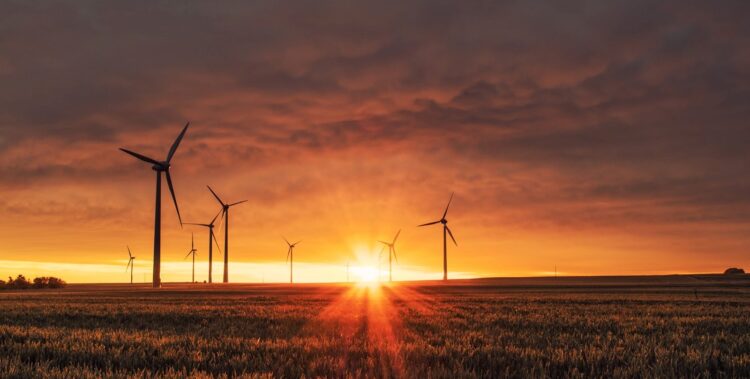
COVID-19 stimulus packages represent a critical juncture for climate policy
On 02.04.2020 by Nicolas SchmidGovernments around the world have implemented strong, science-based measures against the spread of COVID-19, ranging from border closures to the lockdown of approximately one-third of the world population. As a result, economic activity of most sectors and countries abruptly and strongly decreased. To prevent a global economic and social crisis, governments around the world have proposed massive stimulus programs. Read More
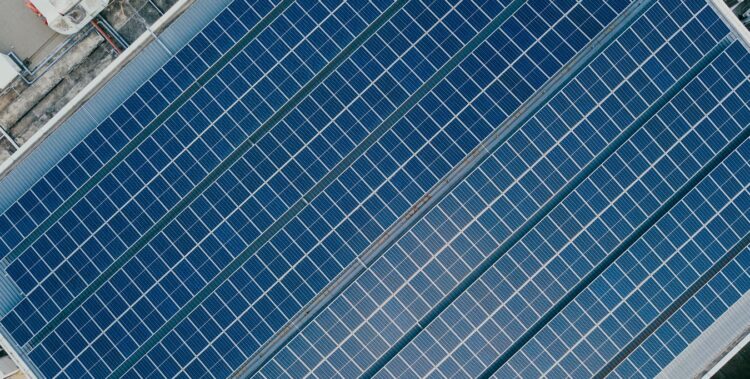
Switzerland’s strategy will not deliver the solar power it needs. Here’s why. / Die Strategie des Bundesrats wird die benötige Solarenergie nicht liefern. Die Gründe warum.
On 17.02.2020 by Léonore HälgThe Swiss federal council proposes to support large-scale solar PV with competitive auctions for one-off investment grants. This will not scale up solar PV investment to the extent necessary to reach the Swiss climate and energy targets. I offer suggestions on how to improve the proposal. Read More

Retrofitting for good: insights from the Swiss Household Energy Demand Survey
On 25.11.2019 by Anna StünziFindings from the Swiss Household and Energy Demand Survey shed new light on the willingness to live in a more energy-efficient building. Most surprisingly: more than 50% of the participating tenants would accept a higher rent increase than the expected savings from their energy bills after the renovation. Read More

Natural gas: a bridge fuel to nowhere
On 20.10.2019 by Ivalin PetkovWhy we have already ‘crossed the bridge’, necessitating a phase-out and heavy divestment from natural gas. The solutions are reliable, cost-competitive, and ready – decarbonized renewable energy sources with storage. Read More
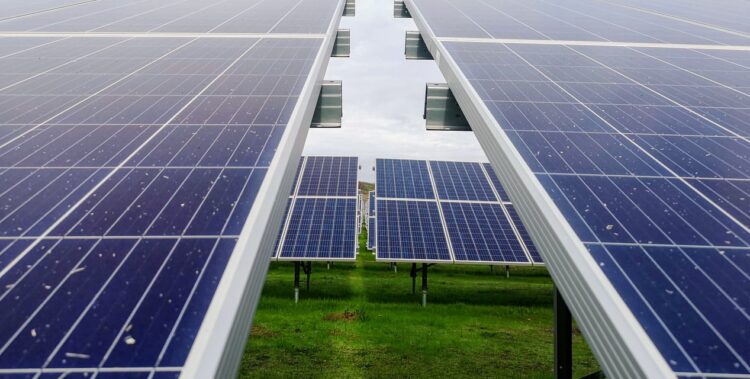
Cheap solar alone would not prevent a renewable energy gap
On 06.10.2019 by Alejandro Nunez-JimenezThe energy-efficiency gap describes how firms and individuals underinvest in profitable energy-saving technologies.
Will there be a similar gap for investments in renewables? Read More
Archives
- June 2024
- May 2024
- April 2024
- January 2024
- December 2023
- October 2023
- August 2023
- July 2023
- June 2023
- May 2023
- April 2023
- March 2023
- February 2023
- December 2022
- November 2022
- October 2022
- September 2022
- July 2022
- May 2022
- April 2022
- March 2022
- February 2022
- January 2022
- December 2021
- November 2021
- October 2021
- July 2021
- June 2021
- May 2021
- April 2021
- March 2021
- February 2021
- January 2021
- December 2020
- November 2020
- October 2020
- September 2020
- July 2020
- June 2020
- May 2020
- April 2020
- February 2020
- January 2020
- December 2019
- November 2019
- October 2019
- September 2019
Calendar
| M | T | W | T | F | S | S |
|---|---|---|---|---|---|---|
| 1 | 2 | 3 | 4 | 5 | 6 | 7 |
| 8 | 9 | 10 | 11 | 12 | 13 | 14 |
| 15 | 16 | 17 | 18 | 19 | 20 | 21 |
| 22 | 23 | 24 | 25 | 26 | 27 | 28 |
| 29 | 30 | 31 | ||||
Categories
- Buildings
- Buildings
- Carbon Removal
- Carbon Removal
- Climate Change
- Climate Change
- Consumer Behavior
- Consumer Behavior
- Economics & Policy
- Electricity
- Electricity
- Energy Efficiency
- Energy Efficiency
- Energy Supply
- Energy Supply
- Heating
- Heating
- Industry decarbonization
- Mobility
- Renewable Energy
- Smart Energy
- Smart Energy
- Society
- Society
- Storage
- Transportation
- Transportation
- Uncategorized
